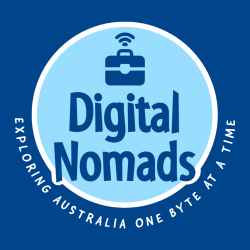Why do you need to back up? Check out our previous article here.
Before we get started, let me tell you a real-life story. A friend of mine thought that the cloud was the waves in the air that transmitted data. She honestly thought that when we talked about “the cloud”, the information was just flying around above our heads. Now some of you may laugh and think that is ridiculous and others may think “isn’t that what it is?”.
TechTarget defines cloud storage as a service model where data is transmitted and stored on remote storage systems and is made available to users over the internet. Basically, this means that the data is stored on a server in a remote location. So, it isn’t technically “in the cloud”.
There are free and paid services to back up data. This article is looking at these services from a personal point of view, not an enterprise.
You may ask why you would want to store your data on someone else’s hardware and not your own. There are pros and cons to both options. We discuss backing up to a storage device in this article.
Pros
- Access your data from any location with internet access- unlike a hard drive which you may not physically always have with you, if your data is in the cloud, it means it can be accessed wherever you are as long as you have internet access.
- Save space and know where your data is- if your data is in the cloud, it means that you don’t have random USB sticks and external hard drives laying around.
- Disaster Recovery- your data is backed up by third-party professional entities so that if anything goes wrong, it is up to them to fix it. It also means that you don’t need to worry about losing your hard drives or having them stolen.
- Automation- most solutions offer automation. Most even have the option of saving it to your device and then syncing it to the cloud. With automation, you don’t need to run manual backups or manually copy data.
- Cost- although you are paying for cloud storage (usually a monthly or yearly fee), if you compare that to buying physical hard drives, it usually works out cheaper to pay for cloud.
- Scalability- there are free options for small use, and then the costs go up from there. If you have a lot of data, or your data needs change, you can move up and down as required.
- Sharing options- you can share files and folders with other users, so you don’t need to email large files.
- Stored offsite- the data is stored offsite so if something happens to your house or caravan (fire, flood, theft etc) then the data can still be retrieved.
Cons
- Requires internet- some solutions are online based only and as such would require the internet to even access it. However, as mentioned, many store the data locally and sync to the cloud when there is internet access. If you are going weeks without internet access, you may need to consider if that is an acceptable timeframe to go without backing up.
- Security and Privacy- this can be a deal breaker for some. Yes, you are allowing third-party companies to handle your data. You are relying on them to make sure their systems are protected and they have controls in place.
Advice
- Do your research and compare the solutions. Both on the internet and with family and friends who have experience with different solutions.
- Choose a trustworthy, well-known company.
- Regularly check that the service is running and that everything is working
Options
I am only going to talk about the 3 services I have personally used. There are many more out there but as I haven’t used them, I can’t talk about my experience with them. All these solutions offer the option to save locally and sync to the cloud automatically when there is internet access. You install the software on your computer, save the files to the correct folders and is automatically synced when you make changes to the files. It also means that you can log into the account from any computer with internet to access the data.
Google Drive
This is great if you have a Gmail account as everything is seamless and you only have one login. You can have up to 15GB (including email storage) on the free plan. Then it goes up from there. $2.49 a month for 100GB, $4.39 a month for 200GB and $12.49 a month for 2TB.
It does offer Google Docs so you can edit your documents in the browser if required. I don’t like this version as much as Microsoft Office so I will only do this if necessary. Otherwise, I just open it directly into Word or Excel and my changes are saved.
OneDrive
If you have a Microsoft account, OneDrive is a great option. The free version has 5GB of storage. Otherwise, you can buy subscriptions from Microsoft. $3 month has 100GB, $10 month has 1TB (plus Microsoft Office Apps) and $13 month includes 1TB each for up to 6 people. It works out cheaper if you buy for the whole year.
Dropbox
It’s been a while since I used Dropbox. You can get a free account with 2GB storage, $18.69 per month for 2TB and $31.89 per month for 2TB for up to 6 users. It is cheaper for a yearly account.




One Reply to “CLOUDY WITH A CHANCE OF BACKUP”